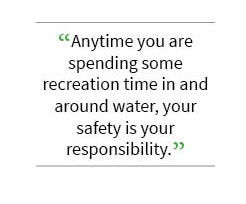Published in the November 7 – 20, 2018 issue of Morgan Hill Life

The idea of having a student-led forum was a bit controversial. Some people told us the students wouldn’t take the process of organizing it seriously. We felt otherwise. The students were guided by members of the local American Association of University Women, Margaret McCann and Janet McElroy, as well as Banuelos representing the Rotary Club of Morgan Hill. The young people, it turns out, did indeed take seriously their leadership responsibilities of putting together a candidate forum open to the public.

One of our aspirations for this candidate forum was that by having it take place at a high school venue and led by students, more young people would attend and learn about the vital democratic process of becoming informed about those seeking political office. There were a few fellow students in the audience, but it wasn’t the large number were had hoped for.
A poll released this summer shows many young Americans don’t value living in a democracy. The nonprofit Democracy Project conducted a survey with those in the millennial generation (born in 1982 and the two decades following) and Generation Z (the generation born after millennials) and found these groups are the least likely to think it’s “absolutely important” to live in a democracy. Fewer than 40 percent of both those generations surveyed value democracy, while nearly 77 percent of those ages 65 and older say it is “absolutely important” to live in a democracy.
We see a dangerous decline in democratic engagement as these young people mature into voting age. That presents a huge problem for sustaining the American republic.
One proposal to address this problem is to reduce the voting age to 16. We recently received a press release from Monterey County Supervisors Luis Alejo and Simon Salinas proposing placing a ballot measure on the November 2020 General Election to allow 16- and 17-year-old citizens to vote in local elections in Monterey County. Frankly, this is not a wise “solution.”
Young people who are 16 and 17 are not yet adults. Many of them lack the emotional maturity and life experiences to vote with good judgment. At 16 and 17 years, most girls and boys are too inexperienced in the electorate and might be easily swayed by advertising and false news stories. Young potential voters might be pressured to vote in a certain way if they are influenced by the political beliefs of their teachers and/or parents. They need more time to develop their own independent political views, not just borrow what might be trending in their social circles. They lack at that age the independence of opinion and the critical thinking skills to understand arguments in relation to their best interest — and the best interest of their community. And how many 16- and 17-year-olds already overloaded with school work, sports, clubs, and other activities will take the time and make the effort to inform themselves on the issues and candidates based on fact-based arguments? Some might. Most won’t.
A better solution is to improve our education system so that young people have the opportunity for verbal achievement. A 2017 study shows that students who gain greater verbal skills in schools, and thereby do better academically, are also more likely later as adults to vote in elections and volunteer in their communities. The research also shows that students who are from disadvantaged social backgrounds receive from their classroom experience fewer verbal learning opportunities, which in turn significantly reduces their changes of participating in the political process.
Getting today’s young people engaged — and excited — about participating in the democratic process won’t be easy. And it certainly won’t come about merely by lowering the voter age — a change in our election system that would prove dangerous to democracy if uninformed and easily manipulated high school students find their way into a voting booth. The real solution is to improve our schools so that all young people have an opportunity to improve their verbal skills in reading and writing. Education excellence is the key to the preserving the American republic for future generations.






